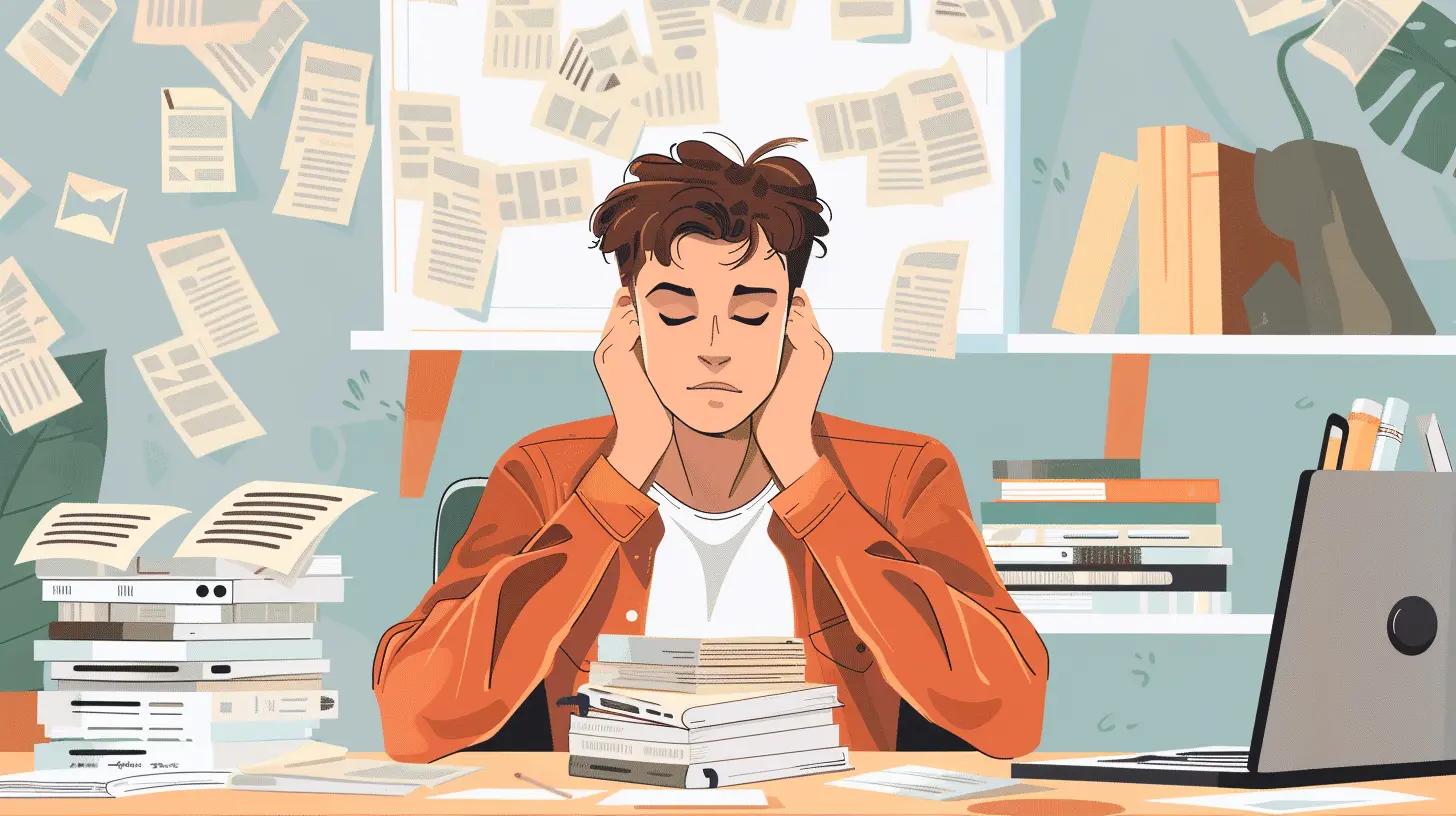Financial Mistakes That Lead to Debt and How to Avoid Them
2 July 2025
Let’s be real—money mistakes are something we've all made at some point. Whether it was swiping your credit card like a magic wand or ignoring that suspiciously growing credit card bill, the path to debt can sometimes feel like a slippery slope. But here's the deal: understanding these financial pitfalls is the first step to avoiding them and getting your money game strong.
In this guide, we’ll break down the most common financial mistakes that shove people into debt—and more importantly, how you can dodge them like a pro.
1. Living Beyond Your Means
Ever heard the saying, “Champagne taste on a beer budget”? That’s the perfect way to describe what living beyond your means looks like.What's the Problem?
It’s tempting to keep up with others—fancy dinners, weekend getaways, new gadgets. But when your spending exceeds your income, that gap gets filled by...you guessed it: debt.How to Avoid It
- Budget, budget, budget – Yes, it’s not sexy, but it works.- Track your income and expenses and separate your needs from wants.
- Use the 50/30/20 rule: 50% for necessities, 30% for wants, 20% for savings and debt payments.
_Quick Tip: If your lifestyle relies heavily on credit cards to fund wants, you're already living beyond your means._
2. Ignoring a Budget (Or Not Having One at All)
Think of a budget like Google Maps for your money. Without it, you're just driving blind and hoping you don’t hit a financial pothole.Why It’s Dangerous
Not having a budget means you have no clue where your money is going. You could be overspending in areas you rarely think about—like subscriptions, dining out, or impulse shopping.What to Do Instead
- Start with a monthly budget using an app like Mint, YNAB (You Need A Budget), or even an Excel spreadsheet.- Be realistic. Don’t slash your coffee budget to zero if you know that’s your “treat myself” moment.
- Review your spending at the end of each month and adjust.

3. Relying on Credit Cards as Income
Swiping first and thinking later? It’s one of the sneakiest ways to end up drowning in debt.The Credit Card Trap
Credit cards aren’t evil. They’re tools. But the problem starts when you treat available credit like free money. That leads to mounting balances and a ton of interest charges.How to Break the Cycle
- Only charge what you can pay off in full each month.- Avoid carrying balances from month to month.
- Use cash or debit for everyday expenses to stay grounded in your actual income.
_Think of credit cards like fire—great for cooking, but dangerous if left unattended._
4. Not Having an Emergency Fund
Life happens. The car breaks down. Medical bills drop out of nowhere. You lose your job.Why It Matters
Without a safety net, unexpected expenses land straight on your credit card or drain your savings. That’s how people fall into debt from just one surprise expense.Build Your Emergency Fund
- Start small—$500 to $1,000 is a great beginning.- Set up automatic transfers to a separate savings account.
- Eventually aim for 3–6 months’ worth of essential expenses.
_Having an emergency fund is like having a fire extinguisher—you hope you never need it, but you’ll be glad it’s there._
5. Paying Only the Minimum on Credit Cards
Let’s say you owe $2,000 with a 20% interest rate and only pay the $40 minimum each month. Know how long it’ll take to pay it off? Over 10 years. Yep, a whole decade.What’s the Issue?
Minimum payments keep you in debt longer and rack up tons of interest. You end up paying double—or even triple—what you originally spent.Game Plan
- Pay more than the minimum. Even $20 extra makes a difference.- Use the avalanche method (pay off high-interest balances first) or the snowball method (smallest balance first for motivation).
- Avoid adding new charges while paying down debt.
6. Taking on Too Much Student Loan Debt
Education is important, no doubt. But not all student loan debt is good debt, especially when it outweighs your future earning potential.The Big Picture
Taking out six figures in loans for a career that pays $40,000 a year? That math doesn’t add up.Smart Moves
- Research the ROI of your degree.- Start at community college or apply for scholarships and grants.
- Don’t borrow more than your expected first-year salary.
7. Not Understanding Interest Rates
Interest is like a sneaky little gremlin that grows the longer you let it sit.Why It’s a Problem
If you don’t understand how compound interest works, you'll end up paying way more than you should—especially on credit cards, payday loans, or even car loans.How to Get Ahead
- Learn the basics of interest—APR, compound vs. simple interest.- Always read the fine print before you borrow.
- Compare interest rates before taking on new debt.
_If you don’t know how interest works, it’s like playing a game without knowing the rules—you never win._
8. Impulse Spending
Ever walked into Target for toothpaste and walked out with $200 worth of stuff? Yeah, we’ve been there.The Danger
Impulse purchases offer short-term joy but long-term financial headaches if done often enough. These seemingly small buys add up big-time.Avoiding the Impulse Trap
- Wait 24 hours before making non-essential purchases.- Unsubscribe from retail emails and remove saved credit cards from shopping sites.
- Shop with a list—and stick to it.
9. Financing Luxury Items
We’re talking about upgrading your car every two years, buying the latest iPhone on installment, or leasing things you can’t actually afford.The Catch
Financing feels easier because you pay in chunks. But those chunks accumulate—and include interest.Be Smart
- Save up for luxury purchases instead of financing them.- Ask yourself if the item is really worth being in debt for.
- Consider secondhand or older models to save.
10. Not Investing in Financial Education
Look, they probably didn’t teach you budgeting and credit scores in high school. But that doesn’t mean you can’t learn now.Why It Hurts
When you don’t understand how money works, you’re more likely to be taken advantage of or make poor decisions.Fix It Like a Boss
- Follow finance blogs, listen to podcasts, watch YouTube channels.- Read one personal finance book a quarter.
- Ask questions, even if they seem “basic.” Everyone starts somewhere.
Final Thoughts
Debt doesn’t happen overnight. It’s usually the result of small mistakes that pile up over time. The good news? Just like you can dig into debt, you can dig right back out—with intention, education, and a little bit of grit.The first step is awareness. The second is action.
So, take a hard look at your money habits today. Are you living above your means? Dodging your budget? Relying too heavily on credit? That stops now. You’ve got everything it takes to make smarter decisions and build a financially secure future.
Because let’s face it—peace of mind is way better than a pile of unpaid bills.
all images in this post were generated using AI tools
Category:
Debt ManagementAuthor:

Angelica Montgomery
Discussion
rate this article
1 comments
Kingston McAdoo
Unravel the hidden traps of financial missteps lurking in plain sight. Discover how to escape the debt cycle and reclaim your financial freedom.
July 17, 2025 at 12:55 PM

Angelica Montgomery
Thank you for your insightful comment! Recognizing and addressing these common financial pitfalls is key to achieving lasting financial freedom.


